Everybody loves an underdog. Now that this college basketball has begun, it’s easy to remember some of the popular underdogs from last year. During the 2024 NCAA Tournament, coach Greg Kampe and the Oakland Golden Grizzlies may have been the most memorable.
The #14 seeded Oakland Golden Grizzlies out lasted the #3 seeded Kentucky Wildcats 80-76 in Pittsburgh. Before that game #14 seeds were 22-133 all-time against #3 seeds. Oakland defeated a Kentucky roster featuring three players drafted to the NBA just three months later. The Golden Grizzlies held the lead for nearly the entire game, and they ended up shocking college basketball world.
“For many people that were there, it’s the greatest moment in Oakland history, and it should be. It was spectacular. It was unbelievable,” Kampe said.
Two days later, it appeared Oakland would continue playing the role of Cinderella. The Golden Grizzlies and the NC State Wolfpack had battled for 39 minutes and 43 seconds. The game was tied at 66 with 17 seconds left to play. Oakland had the ball and Kampe used a timeout and drew up a play. The clock was about to strike midnight for Cinderella and, in hindsight, Kampe blames himself.
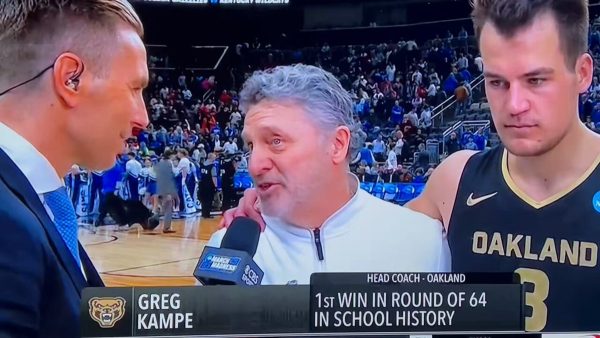
As the teams emerged from their huddles, Kampe noticed North Carolina State star center D.J. Burns was not on the floor. Instead, a defensive replacement took the court. Oakland committed a turnover and did not get a shot off and the game went into overtime. Oakland only scored seven points in the five minutes of overtime and lost to the Wolfpack, who eventually went on to the Final Four, 79-73.
“For me, the loss to North Carolina State, I just can’t let it go. I still wake up at night thinking, ‘Why did I call that timeout?'” Kampe said. “Calling that timeout allowed them to take D.J. Burns out of the game, and the guy that they replaced him with made the defensive play that caused our turnover.”
“I’m not mad at myself about the play I called. I’m mad at myself about that because we would have gotten a shot and Trey Townsend would have gotten the ball, and one of three things would have happened: he would have missed, he would have gotten fouled, or he would have scored the winning basket. So 67 percent of those are positive. That’s a real struggle for me. It’s hard to forget,” Kampe said. “I wanted to coach those kids another week because they were such a great group of kids. I just wanted to be around it and I felt like I was the reason we weren’t.”
Even though Oakland’s run ended earlier than Kampe wanted, there were many positives that came from their postseason success.
Oakland’s historic season brought the university more funding and recognition than ever before. After their win against Kentucky, merchandise sales that night were over $8,000 and the university homepage crashed due to all of the online engagement.
Even Kampe got his 15 minutes of fame and then some thanks to the NCAA Tournament. He said he went from being a “fill-in” at coaching clinics to being everyone’s top choice. He has even played in celebrity golf tournaments because of Oakland’s win over Kentucky.
“Everywhere I go people recognize me. I get recognized by people that there is no way they should recognize me,” Kampe said.
Many of Oakland’s standout players were also caught up in the fanfare. Kampe highlighted how Jack Gohlke’s Instagram followers jumped from 485 to 55,000 in just one night.
“For Jack Gohlke, Trey Townsend, Chris Conway, and everybody on that team, it changed their lives. And I mean in a great way,” he said.
With the NCAA’s Name Image Likeness policy, the fame of the players took off. Gohlke, who made ten 3-point field goals vs the Wildcats, gained the most fame from Oakland’s win against Kentucky. Soon after the season, Gohlke signed deals with Buffalo Wild Wings and with Barstool Sports.
“It’s crazy what this tournament does, and when you’re fortunate enough to do what we did, the results of it are a lot of fun,” Kampe said.
While the NCAA tournament has been a constant over the years, Kampe has seen plenty of changes in the world of college basketball including the transfer portal and Name Image and Likeness policy where players can now be paid.
“Twenty years ago, if I asked a player to jump, they’d say, ‘How high?’ Ten years ago, if I asked a player to jump, they’d look at me and they’d say, ‘Why?’ This generation of young men, we ask them to jump, they say, ‘Sure, I’ll do it, but you’re going to have to pay me.’ I believe in ten years, if I’m lucky enough to still be around, I’ll ask them to jump and they’ll say, ‘Coach, I’d love to, but that’s not in my contract,’” Kampe said.
As much as college coaches around the nation may dislike the changes to college basketball, Kampe knows that this is the new norm. He lives by one simple phrase.
“I have a sign in my office that says Adapt or Die. I don’t want to be that guy everybody says, ‘The game has passed him by.’ I don’t want that. I just want to go and do my job every day. I believe that, as a coach, you have to understand it. You have to change with what’s going on,” Kampe said.
You don’t survive 40 years in the coaching world without changing. Playing styles are constantly changing and Kampe has been able to adapt to those changes.
“I’ve talked to Rick Barnes, Tom Izzo, and (John) Calipari about it. The coaches of our generation understand it. And the ones that want to keep fighting the fight are going to change,” Kampe said.
The transfer portal and NIL have had a great impact on the recruiting process. Kampe referred to the open transfer portal as “a change agent like no other.”

Recruits now base their decisions less off the teams they are offered by and more off of which boosters and programs can set them up financially. Instead of national championships, these recruits are chasing money, playing time, and exposure.
“They are fans of themselves. They’re fans of getting the best deal they can get and the most money they can get,” Kampe said.
When a program isn’t a true blue-blood, success like Oakland had last year is just free advertising for players to be poached by a bigger program with more resources.
“We had a hell of of a year. We were Final Four good by the end of the season. We proved that in the NCAA tournament,” Kampe said. “I’ve got guys that should come back. Now I have a player at Arizona, a player at Washington and a player at Ohio State. Those were in (the same) recruiting class. If they were still at Oakland we’d be Final Four good again. I’m not going to complain about it. It is what it is.”
It’s not just holding on to the players on his team, Kampe also has to contend with being manipulated by recruits.
Kampe was bowling with his friends when one of them asked why he wasn’t recruiting his grandson, especially since Oakland was his dream school. He admitted that he prefers to keep recruiting separate from his personal life, but in this case he made an offer to the player. To Kampe’s surprise, the player committed to a different school just days later.
“I thought Oakland was this kid’s dream school,” Kampe said. “(His grandfather) said, ‘Well, he said Oakland was his dream school, but he looked at your roster and he knew that he wouldn’t play there as a freshman. And his real dream school is Michigan. That’s where he really wants to play. So he thought if he went to this other school, had a great freshman year that Michigan would want him.’ That just floored me.”
Kampe said that he struggles with the fact that college basketball is less of a team game. He told a story about a season when he lost a couple of important players in the transfer portal late and couldn’t replace them which resulted in a below average season.
“I was very bitter about it. It’s not about the team anymore. I struggled with that,” he said. “I had to make a decision. Do I want to keep doing this? I decided I did,” Kampe said.
Kampe’s best way of adapting over time was being a student of the game. As time moves on, so do the strategies in basketball. Kampe has seen a lot of evolution during his 40-year coaching career. His best way of keeping up with the times is borrowing plays and strategies from other successful coaches.
“I stole from everybody,” Kampe said. “I believe I’m a student of the game. I hope I am, but I’m a stealer. People that are my friends, we talk all the time and I steal from them.”
Obviously Kampe has been able to adapt and succeed. On November 4, 2024, Oakland defeated the Defiance Yellow Jackets 75-52 in the 2024-25 season opener. It was the 700th win in Kampe’s coaching career.
The 2024-25 Golden Grizzlies are poised for success with Coach Kampe at the helm. With games against Kansas, Illinois, Michigan State, and Arkansas, Kampe isn’t afraid to challenge his team early in the year. He tries to test his team early on in order to get them ready for March.
“I like us, I really do. I think we have some really good players. We’re old. We’re mature. I have some great leadership,” Kampe said. “We all have our disadvantages. We all have our hardships. And how you overcome those is whether you’re going to be successful or not. All I know is I’ve got to coach my team at Oakland. I’ve got to make it a great experience for them.”


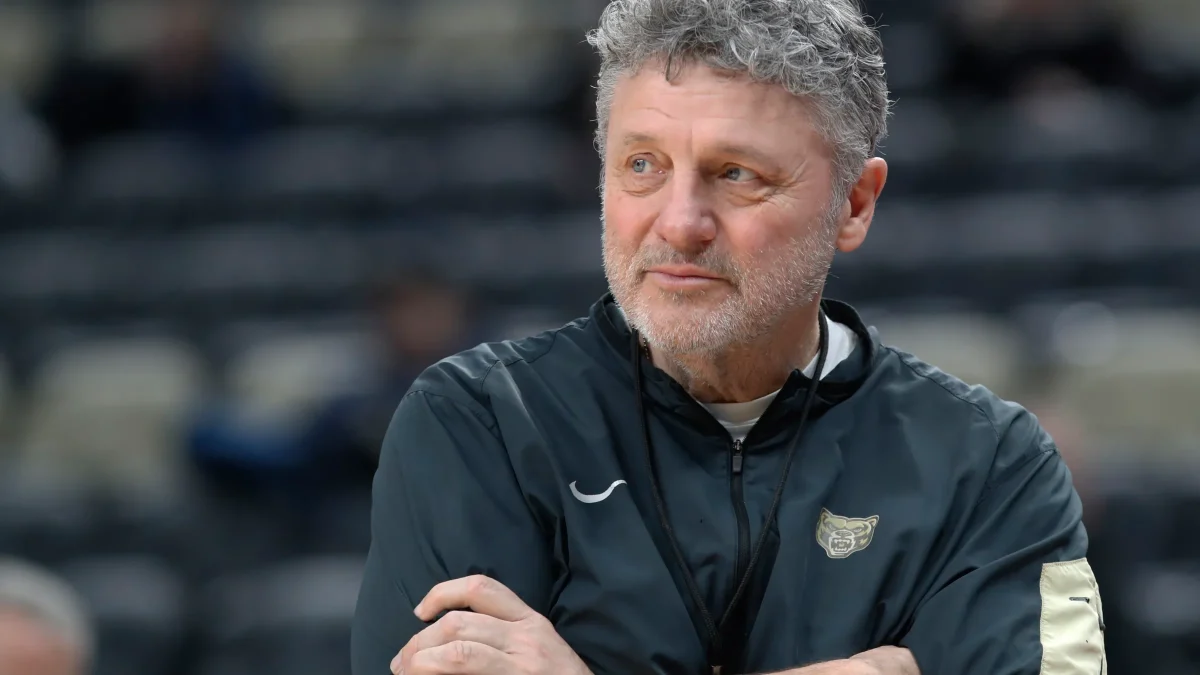
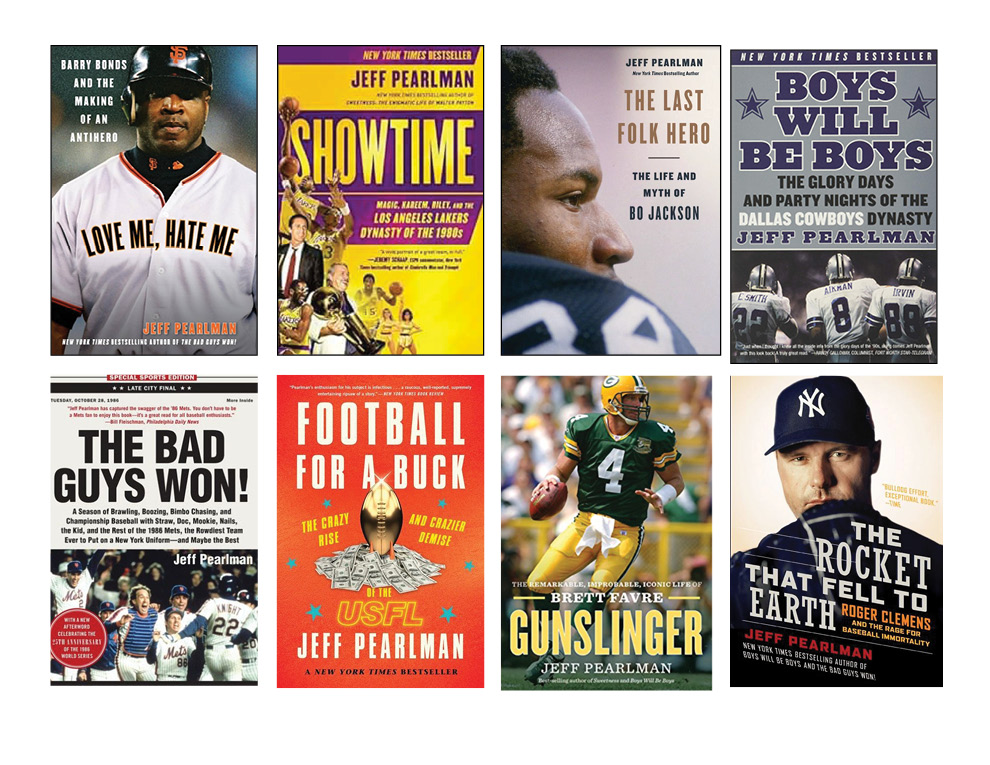
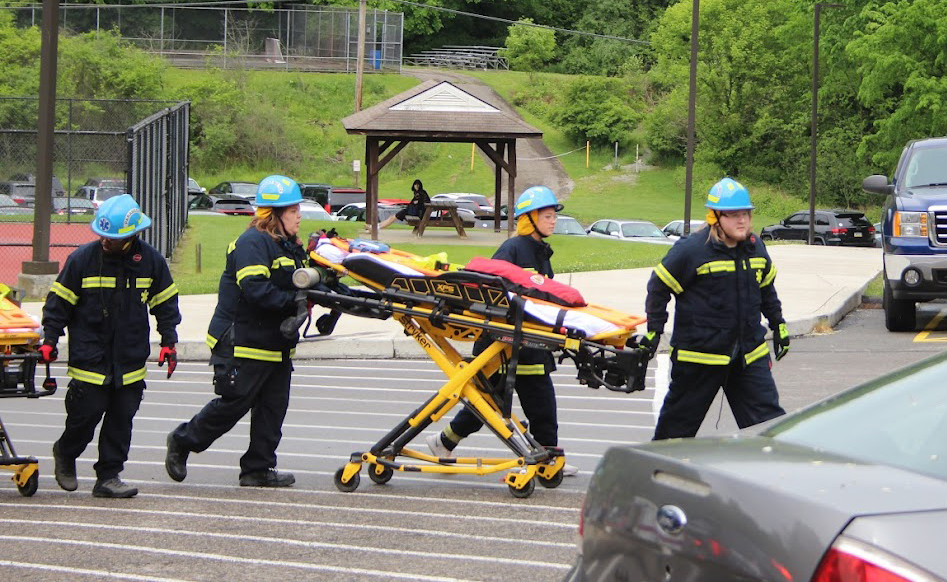

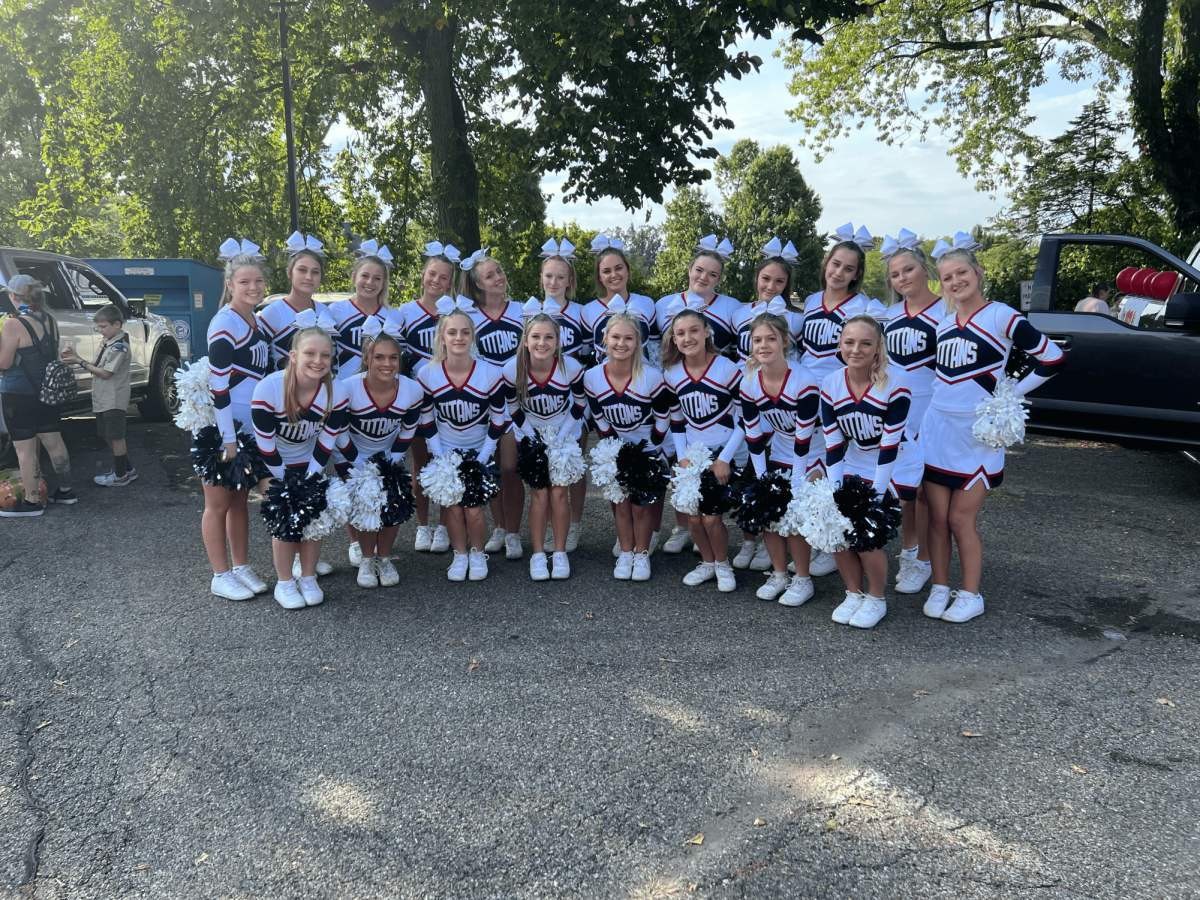
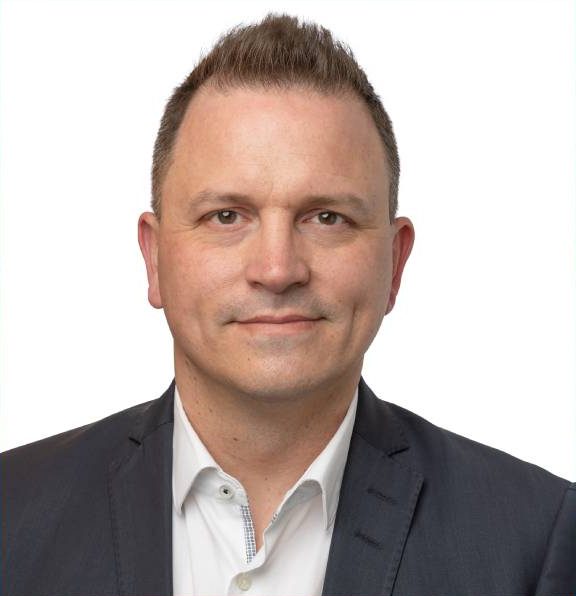
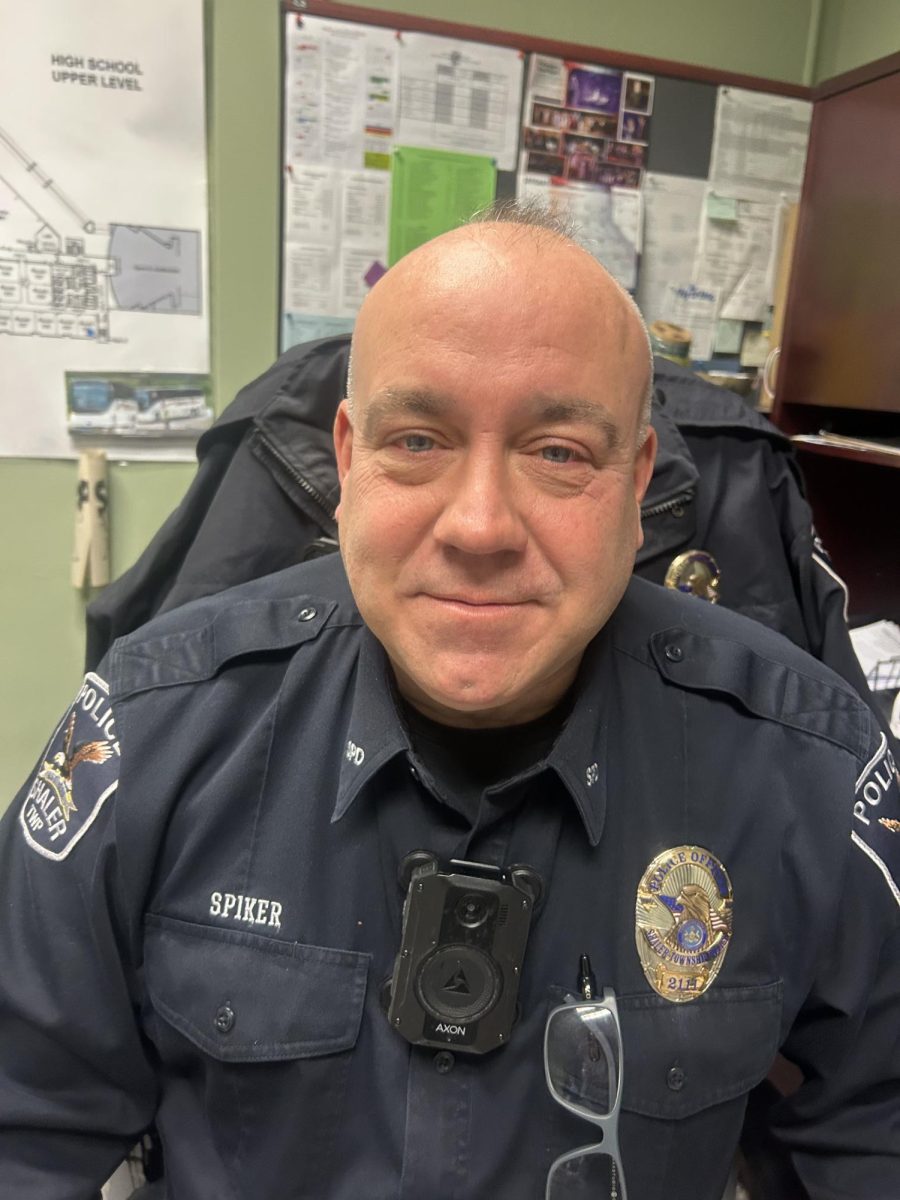
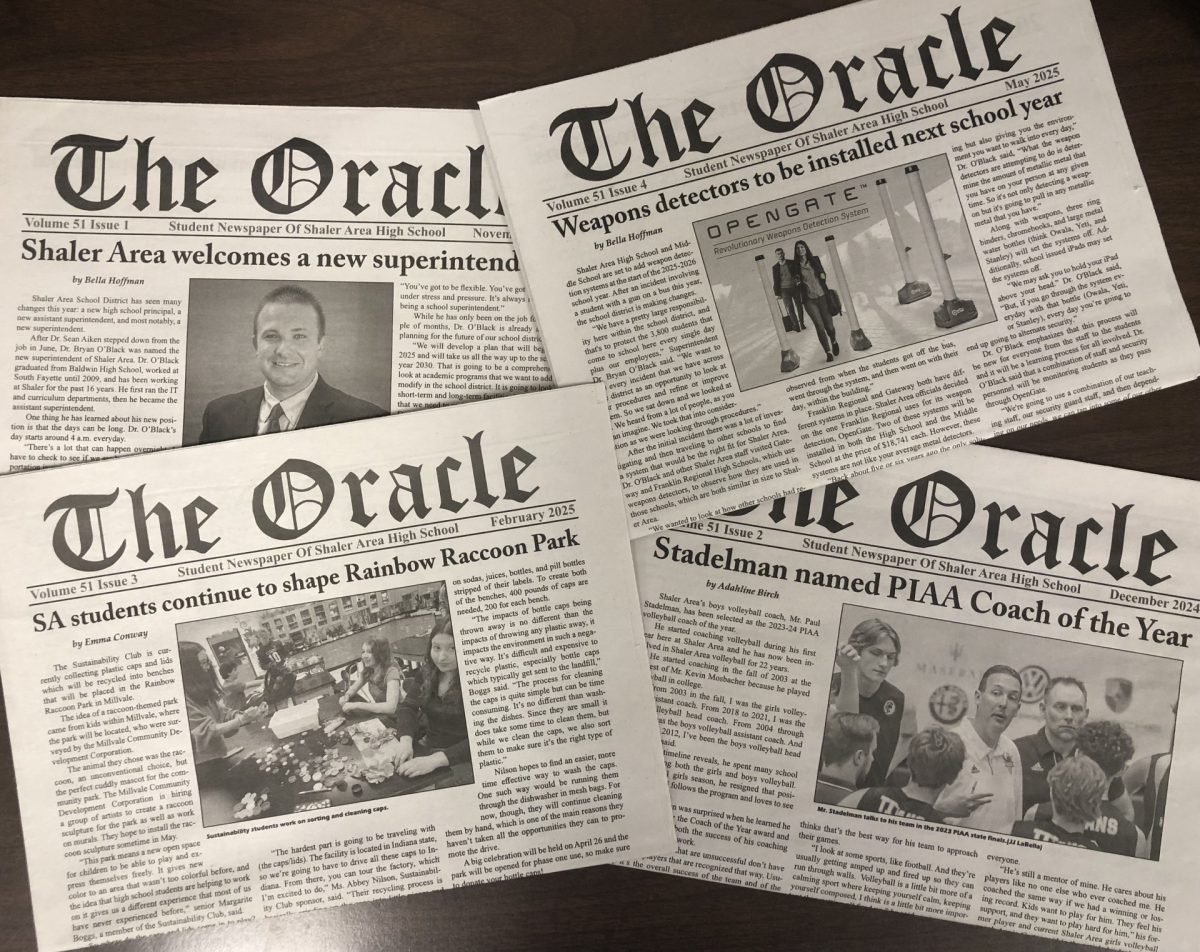


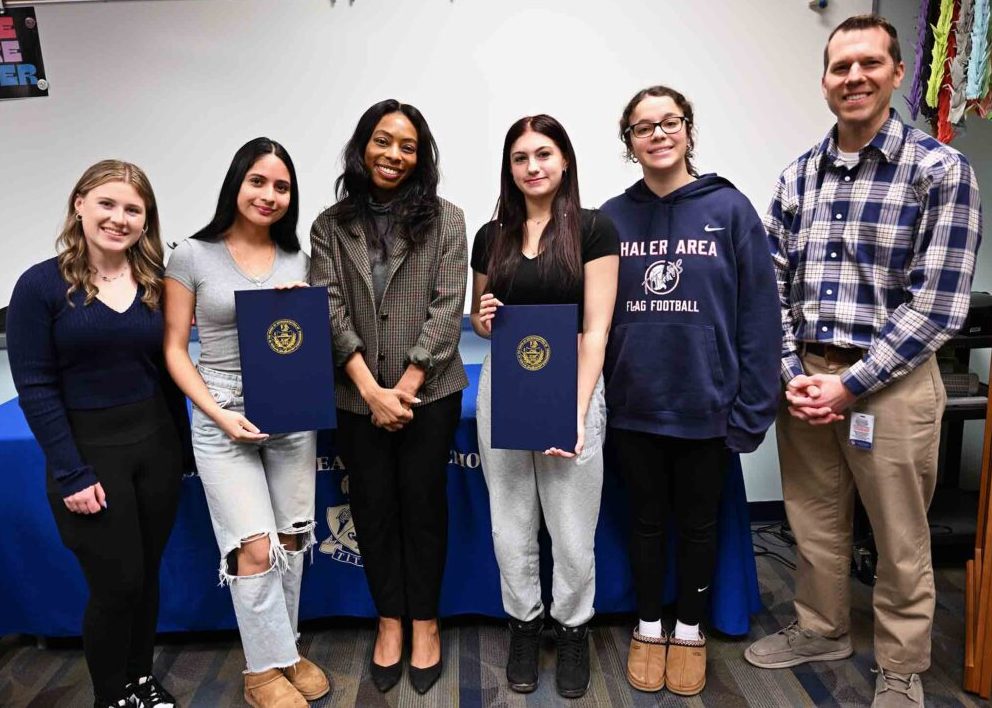
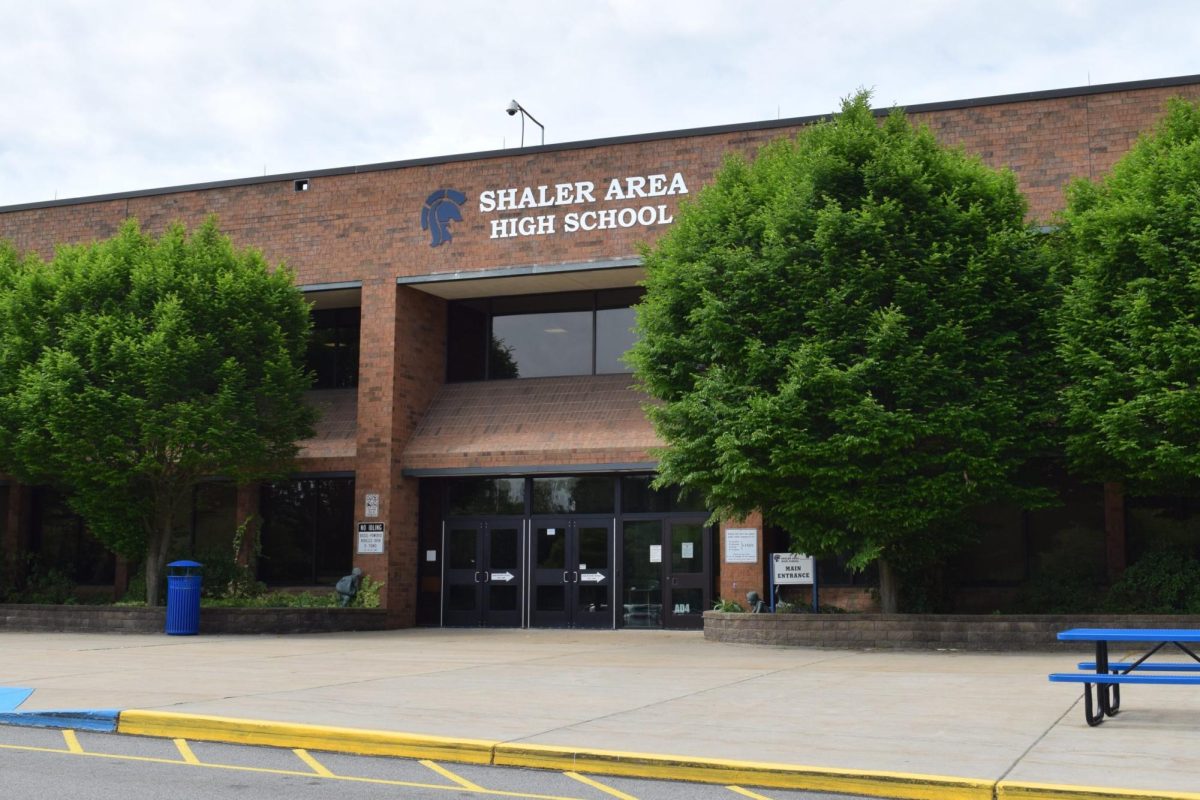
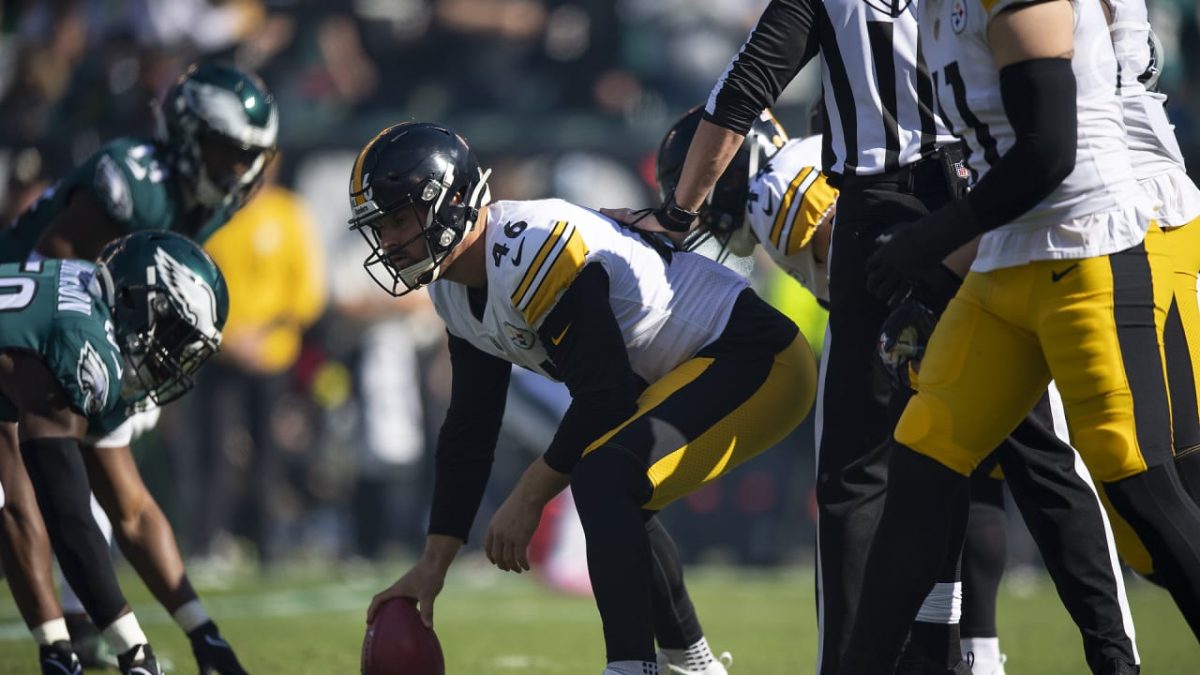

Steve McCollum • May 24, 2025 at 6:16 am
As a former sportswriter who began when I was just 12-years old covering my own Kennedy Twp. Little League baseball, I can appreciate the hard work, effort, research and talent clearly displayed by this 17-year old future scribe. Congrats on your awards. They are well deserved.